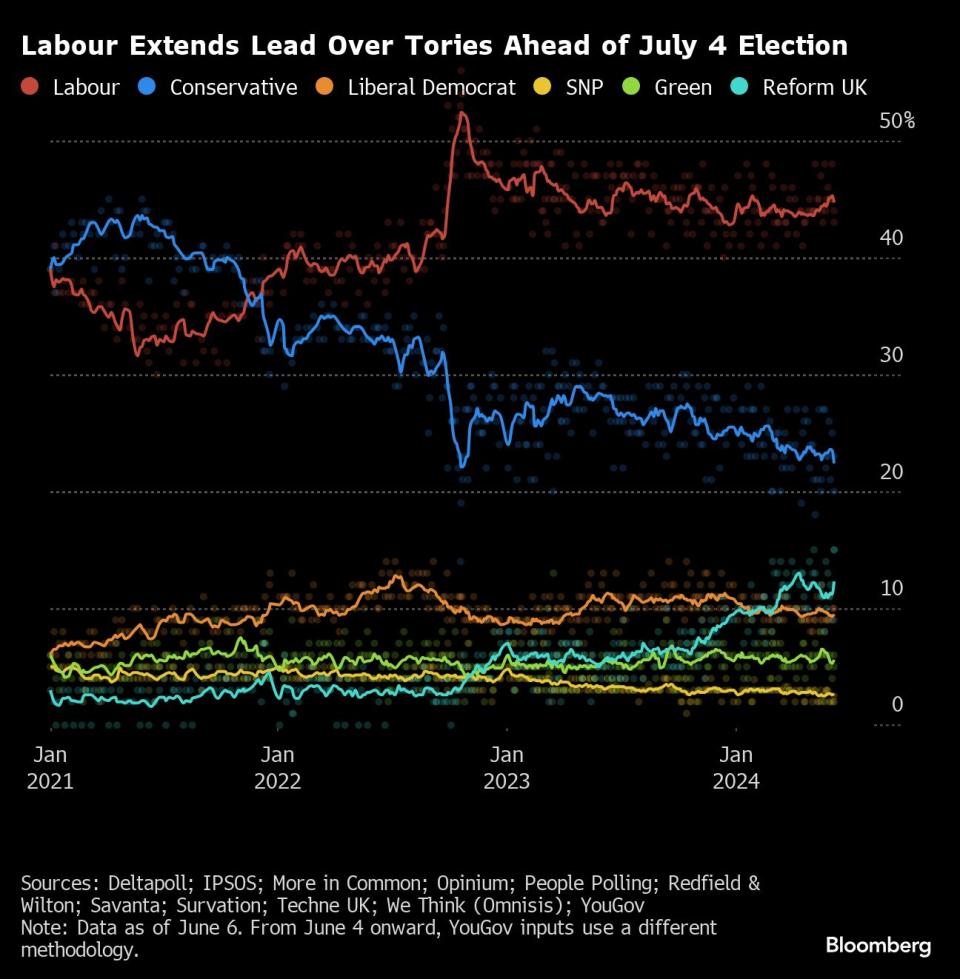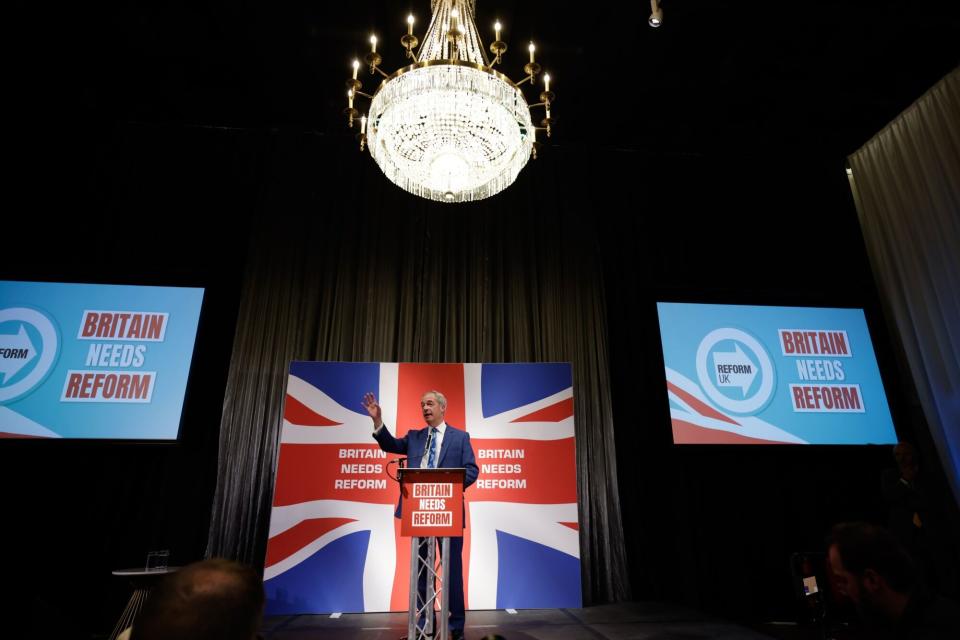Sunak Criticized for D-Day Gaffe by Tory Mordaunt in TV Debate
(Bloomberg) -- Cabinet minister Penny Mordaunt said it was “very wrong” of Rishi Sunak to leave Thursday’s D-Day commemorations in Normandy early, strongly criticizing her own leader in the latest UK election debate, as Reform UK Party leader Nigel Farage sought to capitalize on the prime minister’s gaffe by calling him unpatriotic.
Most Read from Bloomberg
Russia Is Sending Young Africans to Die in Its War Against Ukraine
Putin Is Running Out of Time to Achieve Breakthrough in Ukraine
“What happened was completely wrong, and the prime minister has rightly apologized for that,” Mordaunt said during the BBC’s televised debate late Friday, which included representatives from Britain’s seven main political parties. Sunak “was representing all of us,” Mordaunt said, as the controversy dominated the opening exchanges of the event.
Sunak was forced to apologize earlier on Friday after skipping some events to mark the 80th anniversary of D-Day in France a day earlier. The premier had chosen to return early to the UK to take part in a media interview in which he attacked his Labour opponents — a decision that’s been viewed as a major political and diplomatic misstep that increases the already high chances of a landslide defeat for the Conservative Party in the July 4 election.
Sunak did attend a British event with King Charles III on Thursday morning in Normandy, but he then opted not to represent the UK alongside US President Joe Biden and French President Emmanuel Macron at a gathering at Omaha beach in the afternoon.
Farage — whose Reform UK party stands to benefit from any loss of votes on the Tories’ right flank — didn’t pass on the opportunity to take advantage, branding Sunak a “complete and utter disgrace,” calling him “very unpatriotic” and “dreadful.”
Even the Liberal Democrat representative on the panel, deputy party leader Daisy Cooper, said of the controversy: “It was not only politically shameful, but I think many of us feel personally quite insulted.”
The remarks, part of a 90-minute debate, ensured the row over Sunak’s gaffe would continue into the weekend — with less than four weeks to go until the country’s general election on July 4. There were also clashes about immigration, taxes and defense.
Mordaunt, Farage and Cooper were joined by Deputy Labour Party leader Angela Rayner, the Scottish National Party’s Westminster leader, Stephen Flynn, Green Party co-leader Carla Denyer, and Rhun ap Iorwerth, the leader of the Welsh nationalist Plaid Cymru party.
Farage sought to frame the vote as the “immigration election,” adopting his typically populist approach as he told viewers he was “on a platform tonight with six other people whose parties have been wholly unconcerned with the issue of immigration.” The other parties “think that to even question it somehow makes you a bad person,” the Reform leader said, predicting a “political phenomenon” if his party continues rising in the polls.
Farage burst into the campaign at the beginning of the week, reversing his earlier decision not to run and instead saying he would stand in the Essex seaside seat of Clacton and lead Reform UK.
That dealt a massive blow to Sunak, who has sought to shore up support on the right with a blitz of policies in the early weeks of the campaign. The premier has also this week faced two large seat-by-seat surveys showing the Tories on track for their worst defeat in more than a century, with Labour set for a historic majority.
After clashing in a TV debate on Tuesday, Sunak and Labour leader Keir Starmer sent in Mordaunt and Rayner to represent their respective parties in Friday’s debate.
The two politicians — both known for colorful performances in the House of Commons — clashed on tax, with Mordaunt repeating Sunak’s claim earlier in the week that Labour would put up taxes by £2,000 for Britons over the next Parliament, a figure based on costings that the opposition party said was untrue.
“No we won’t, that is a lie,” Rayner hit back, countering: “Your government has raised taxes to a record level in 70 years.”
Bloomberg’s rolling 14-day average of polls shows Labour with 44.7% of the vote, a lead of 22 points, with the Tories on 22.4% and Reform on 12%. However, some polls since Farage’s return earlier this week suggest that Reform is now only a few points behind the Conservatives.
Most Read from Bloomberg Businessweek
Legacy Airlines Are Thriving With Ultracheap Fares, Crushing Budget Carriers
Sam Altman Was Bending the World to His Will Long Before OpenAI
David Sacks Tried the 2024 Alternatives. Now He’s All-In on Trump
Startup Brings New Hope to the Pursuit of Reviving Frozen Bodies
©2024 Bloomberg L.P.





